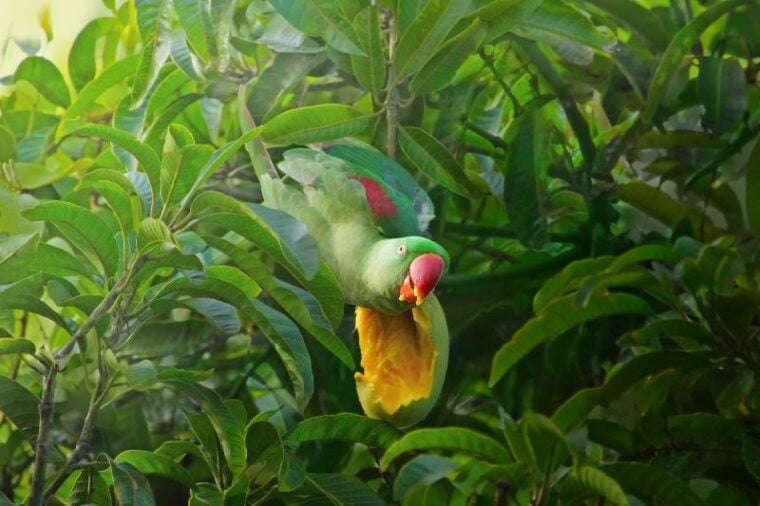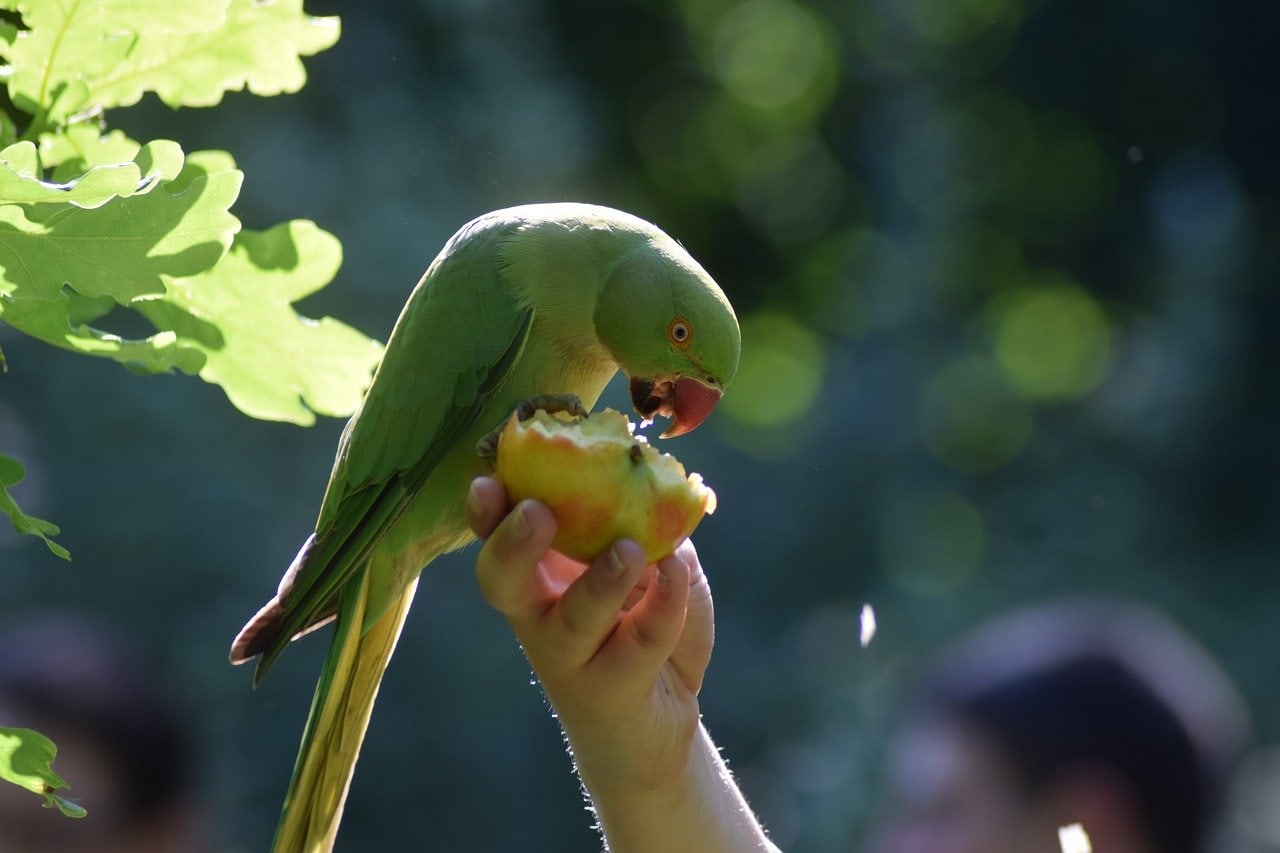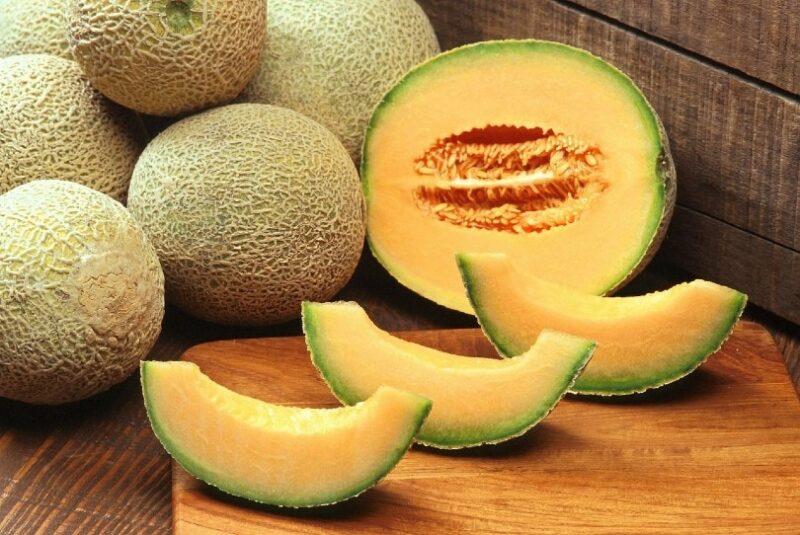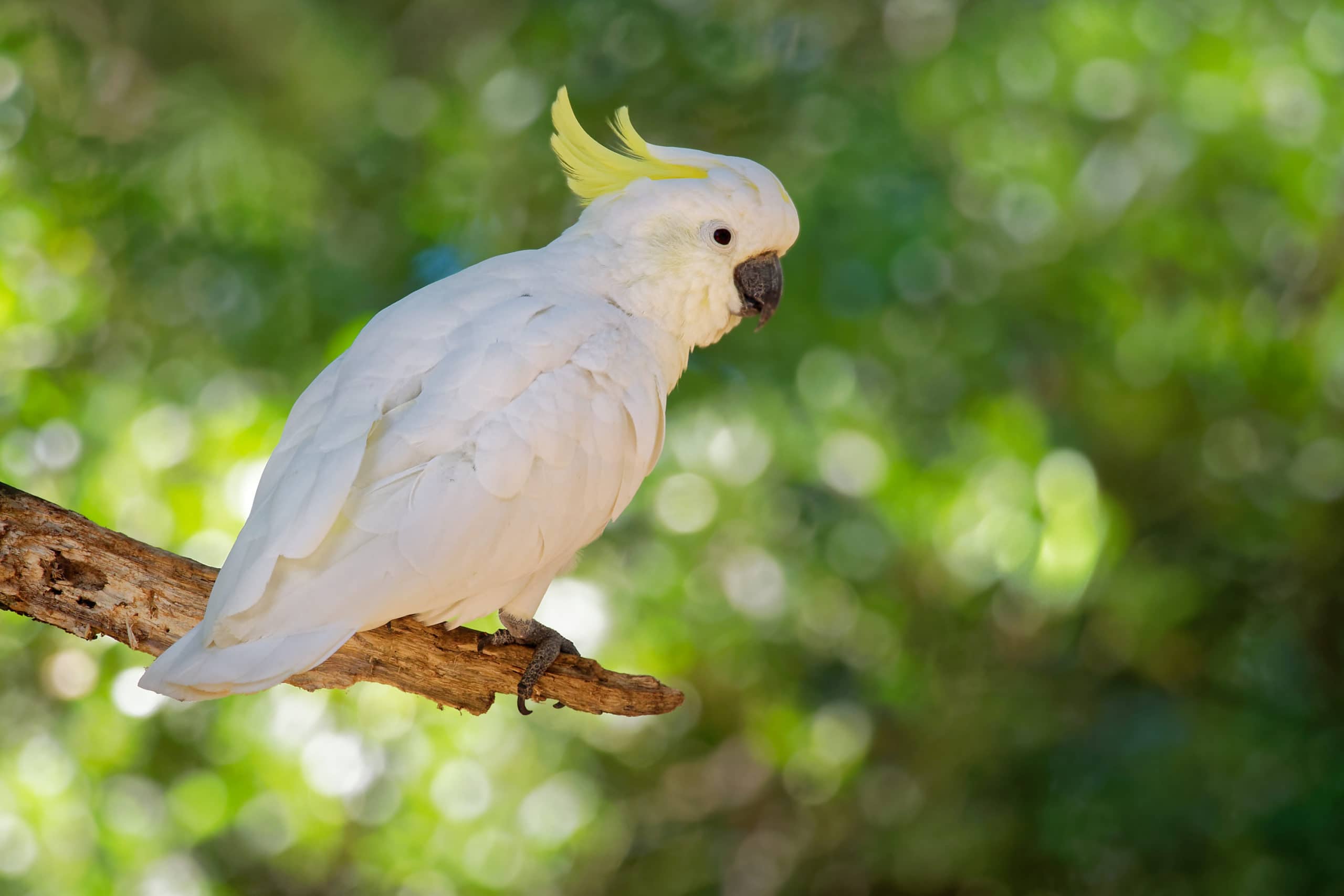
Parakeets, also called budgies, are the most popular species of pet bird in the world. The term “parakeet” is used generally to refer to many small parrots, but the common parakeet (Melopsittacus undulates) is the species most often found as a pet. These birds are social, active, colorful, and relatively easy to care for.
Along with providing your feathered friend with a spacious enclosure, plenty of enrichment and companionship, a balanced diet is one of the most important aspects of caring for parakeets.
While most parrot species should be fed a diet based primarily on species-specific pellets, parakeets are granivores, and should also be offered a selection of seeds. In addition, these should be supplemented with a variety of fresh vegetables and fruit to ensure that your pet receives a variety of foods, improving their nutritional health and wellbeing.
Although it might be easier to list the fruits that parakeets shouldn’t eat, (avocado), we’ve compiled a list of healthy fruity treats that your pet will almost certainly go wild for. Be careful to limit the amount of fruit offered to around 10% of their overall diet, as the high sugar content can be unhealthy.
The 20 Fruits Parakeets Can Eeat
1. Apples
Many parakeets enjoy snacking on apples, which can also serve as a source of enrichment as they chew and crunch. If possible, purchase organic apples but if not, make sure to wash the fruit thoroughly. You don’t have to peel the apple but be very careful to remove the core and seeds. Apple seeds are toxic to parakeets.
Cut the apple into manageable chunks for the bird to eat. They don’t necessarily need to be bite-sized because, as we mentioned, chewing on their food can provide entertainment and enrichment to parakeets.

2. Bananas
Bananas are another great fruit option for parakeets, with no pesky seeds to worry about. Bananas can be offered cut into chunks with the peel on or off. Because bananas ripen so quickly, you can also cut up and freeze this fruit to help it last longer.
Just thaw the chunks before offering them to your parakeet. You may also be able to buy pre-cut and frozen bananas to save even more time.
3. Grapes
Any color or variety of grapes makes a tasty snack for your parakeet. Most grapes sold in stores are seedless but double-check before you buy this fruit for your bird. If you do purchase grapes with seeds, remove them before offering them to your parakeet. Wash and rinse the grapes thoroughly first as well.
Grapes can be fed whole or cut, depending on your parakeet’s preferences. Because grapes are so sweet, you’ll want to make sure your parakeet isn’t just eating them and ignoring the rest of their food.

4. Kiwi
Kiwi is another safe fruit that your parakeet may enjoy. Try chopping kiwi and mixing it with other fruits and vegetables to make a “salad” for your parakeet. As with all fruits, kiwi should be washed before it is served to a parakeet. Kiwi contains many beneficial nutrients, such as vitamin C and antioxidants.
5. Mango
Mangoes and other brightly colored yellow, red, and orange fruits are excellent choices for parakeets because they contain lots of vitamin A, an essential nutrient for birds. These tropical fruits may be available fresh in stores depending on the season and where you live.
While fresh fruit is always the most nutritious, frozen is okay to feed too. Thaw frozen mango before offering it.

6. Papaya
Like mango, papaya is a bright tropical fruit that contains vitamin A. If you’re able to find fresh papaya, make sure to remove all the seeds before feeding it to your parakeet. Although not toxic, they can cause digestive issues if they eat too many. Papaya may be hard to find fresh and expensive to purchase if you can find it.
Frozen tropical smoothie mixtures often contain papaya along with other similar fruits. These thawed fruits can be safely offered to parakeets.
7. Cantaloupe
Melons of all types make an excellent food for parakeets. Cantaloupe, in particular, is a good choice because of the nutrients it contains. Typically a summer fruit, cantaloupe may be available fresh year-round in some areas. Remove the seeds and rind before cutting the fruit into small chunks for your parakeet to eat.
Thawed, frozen cantaloupe is another option to feed. Try mixing several varieties of melon in a healthy fruit salad for your bird.

8. Blueberries
Delicious, bite-sized blueberries are another great fruit option for parakeets to enjoy. These berries are also nutritious, with high levels of antioxidants. Summer is peak season for blueberries, but they can often be found fresh at other times of the year as well. Blueberries are always available frozen too.
With no seeds to remove and no cutting necessary, blueberries are one of the most convenient fruits to feed parakeets. Obviously, you’ll need to thaw frozen berries, but this is usually a quick task because of their small size.
9. Dates
Most people are familiar with dates as a dried snack, but they can sometimes be found fresh in stores and farmer’s markets too. Parakeets can eat fresh dates, but dried fruit should generally be avoided due to the high sugar content. If you happen to live in a part of the country where dates grow fresh, you’ll probably have the most luck finding this fruit.
Make sure to remove the pit before offering dates to a parakeet. They may especially enjoy the chewy texture of this fruit.

10. Figs
Like dates, figs may be difficult to find fresh for sale. Try farmer’s markets or specialty food stores if you want to offer this fruit to your parakeet. Dried figs are more readily available but, like dried dates, contain more sugar than is usually recommended for parakeets to eat.
Fig seeds are very small, but fortunately don’t need to be removed before you feed this fruit to parakeets. Depending on the size of the fig, you may need to cut the fruit into smaller pieces before feeding.
11. Oranges
Parakeets can eat any variety of oranges, although small fruits like mandarins may be easier for them to handle. You don’t need to remove the skin, but try to remove most of the seeds.
Your parakeet may enjoy shredding and chewing on full orange sections. Oranges are known for their vitamin C content but also contain vitamin A, making them a healthy option for parakeets.

12. Peaches
Peaches are readily available fresh in the summer months and like other fruits of a similar color, they contain vitamin A among other nutrients. If possible, look for organic fresh peaches and wash all fruit thoroughly. Remove the pit before feeding peaches to your parakeet but it’s not necessary to peel them first.
Peaches are an especially sweet fruit so monitor how much your bird is consuming, and avoid the canned variety.
13. Pears
Many varieties of fresh pears are available, especially during the fall and winter seasons. Parakeets can eat pears that have had the cores and seeds removed. Wash the fruit and cut it into chunks.

14. Pineapple
Fresh pineapple may not be available everywhere, but if it is, this tropical fruit makes a delicious treat for your parakeet. Carving a fresh pineapple can be time-consuming and messy so be prepared. Frozen and canned pineapple is also available for purchase at any time of year and may be easier to feed. If using the canned variety, use only pineapple in juice, not syrup, and rinse this off before feeding it to your pet.
Offer pineapple mixed with other fruits and vegetables to decrease the chances that your parakeet picks out the tastier options.
15. Pomegranate
Fresh pomegranates are typically only available seasonally and may not be easy to find depending on where you live. Removing the tasty, edible seeds can also be time-consuming but worth the effort. Wild parakeets regularly eat seeds as part of their diet and pet birds may especially enjoy pomegranates for this reason. Alternatively, cut the fruit into quarters and let your parakeet pick the delicious seeds out for themselves.
Some stores sell pomegranate seeds pre-removed from the fruit for convenience as well. Mix pomegranate seeds with other fruits and vegetables into a salad.

16. Strawberries
All berries, including strawberries, make a great fruit option for parakeets to enjoy. Fresh strawberries are generally in season in the spring but may be available year-round in some locations. Dried strawberries are a delicious snack but should not be fed to parakeets due to their high sugar content.
Organic strawberries are ideal to feed because this fruit tends to absorb high levels of pesticides. Depending on the size of the fruit, the strawberries may need to be sliced or chopped so your parakeet can eat them more easily.
17. Plums
Well-washed and pitted plums are another fruit that parakeets may enjoy. Plums are typically a summer fruit, and several different varieties are available. These fruits contain multiple nutrients beneficial to parakeets, particularly vitamin A. Dried plums (prunes) are available year-round but as with other dried fruits, shouldn’t be fed to parakeets because of their high sugar content.
Try chopping plums with other stone fruits such as peaches and mixing them with vegetables to encourage your parakeet to eat a variety of foods. There is no need to remove the skin, but do get rid of the pit.

18. Cherries
The juice may stain your parakeet’s beak, but they’ll surely appreciate the sweet taste of cherries. Generally available only in the summer, several different types of cherries can be fed to parakeets. However, like apple seeds, cherry pits are toxic to parakeets and should be removed from the fruit before feeding.
Because of this, cherries aren’t the most convenient fruit to offer and may be best reserved as an occasional treat.
19. Apricots
Bright orange apricots are another good source of vitamin A that your parakeet may enjoy. However, fresh apricots are not easy to find for sale in grocery stores and the more common dried version of the fruit shouldn’t be fed to parakeets.
If you do find fresh apricots, remove the pit before feeding them to your pet. Along with vitamin A, apricots contain other nutrients like vitamin C, fiber, and potassium.

20. Honeydew Melon
Honeydew melon offers a different flavor and nutrient profile for your parakeet. Fresh honeydews are usually available in the summer, and you can often find them pre-cut with other melons like cantaloupe. If you purchase a whole honeydew melon, remove the rind and seeds before feeding it to your parakeet.
Try freezing chunks of melon for convenience and to avoid waste. Honeydew melon contains many valuable nutrients for parakeets, including vitamin A.
Did You Say Cyanide?
Yes, we mentioned that the stones or seeds of some fruits can be toxic, whereas others may just pose a risk for choking or tummy upset. Certain fruits, including stone fruits, apples, and pears, contain a chemical called amygdalin, which, when broken down and digested, converts into cyanide, a known toxin. This risk is generally low, particularly for humans and other larger animals, as the amount of cyanide produced would be tiny unless a HUGE number of seeds were chewed and eaten. Parrots are small, sensitive, and more likely to break into the seeds, making their risk much greater.
The fruits that pose this cyanide risk include: apples, pears, apricots, plums, nectarines, and cherries. The avocado seed also contains amygdalin, but its flesh and skin also contain a substance called persin, which is also potentially toxic to many animals, including birds, so this is the one fruit that must never be fed to your beloved parakeet.
Conclusion
Although these fruits are all nutritious options for your parakeet, only about 30–40% of their daily diet should be made up of vegetables or fruit. The remaining percentage should be a nutritionally balanced pellet food and seeds. Consult with your avian veterinarian to ensure your parakeet receives the healthiest diet possible.
When feeding fresh fruits and vegetables, it’s important to remove any uneaten portions after a few hours to prevent spoilage and fermentation.
Featured Image Credit: duangnapa_b, Shutterstock










